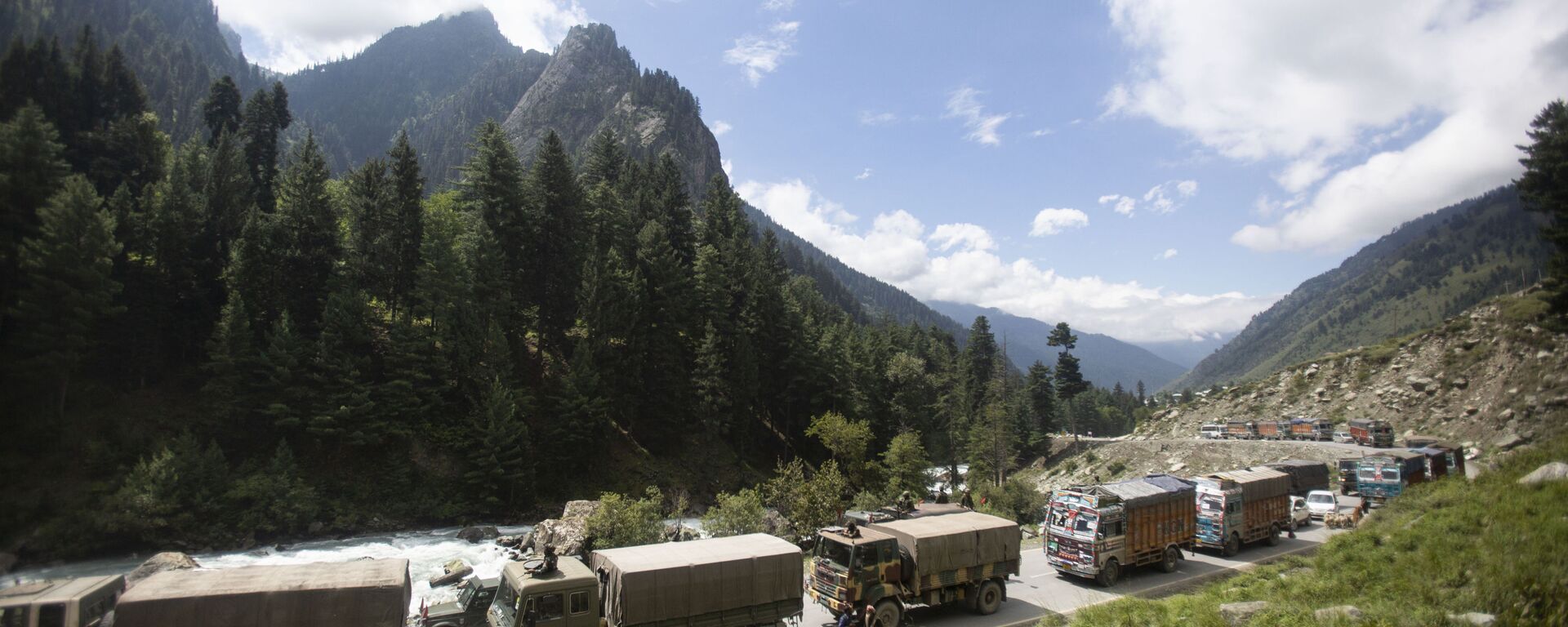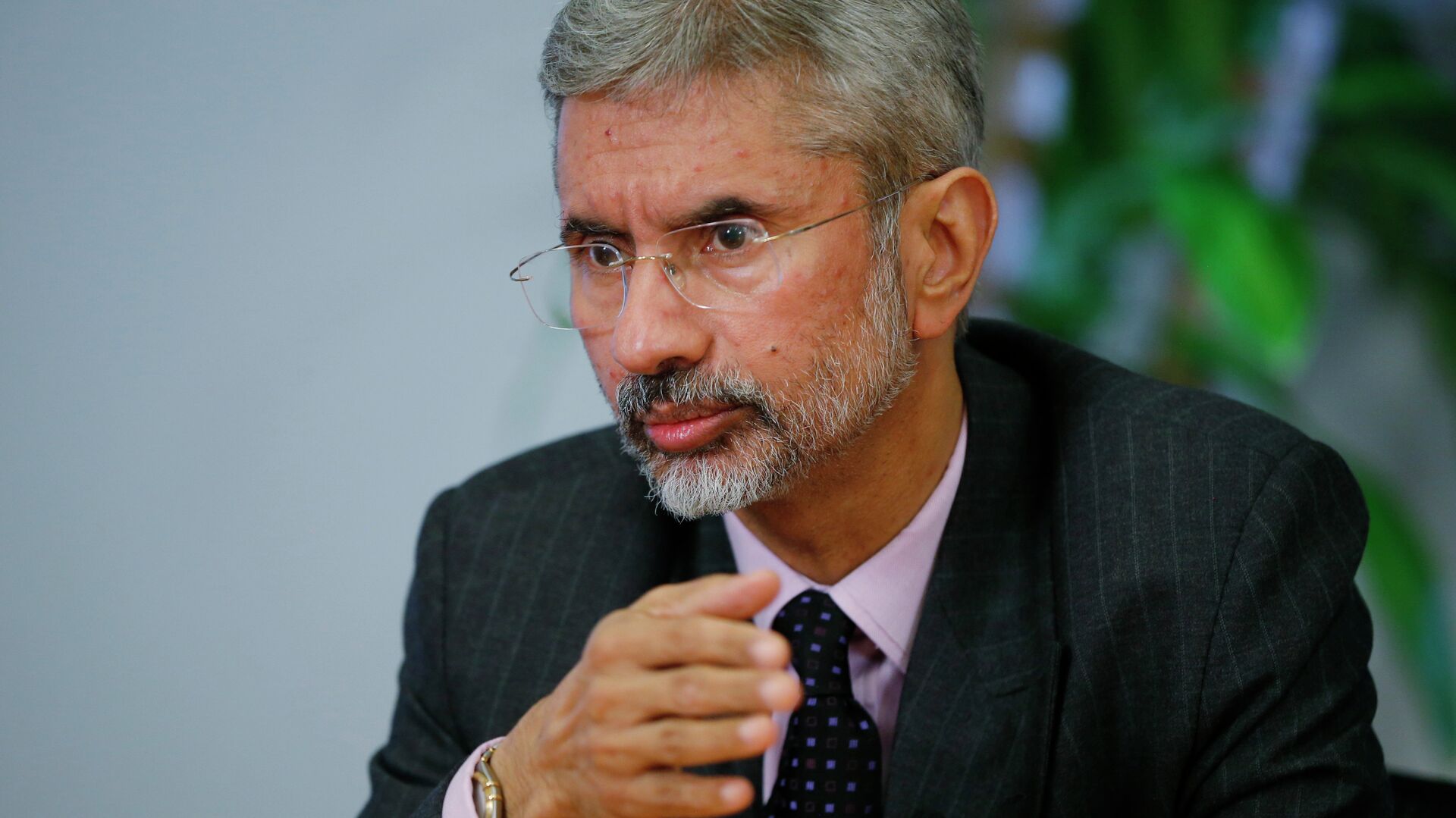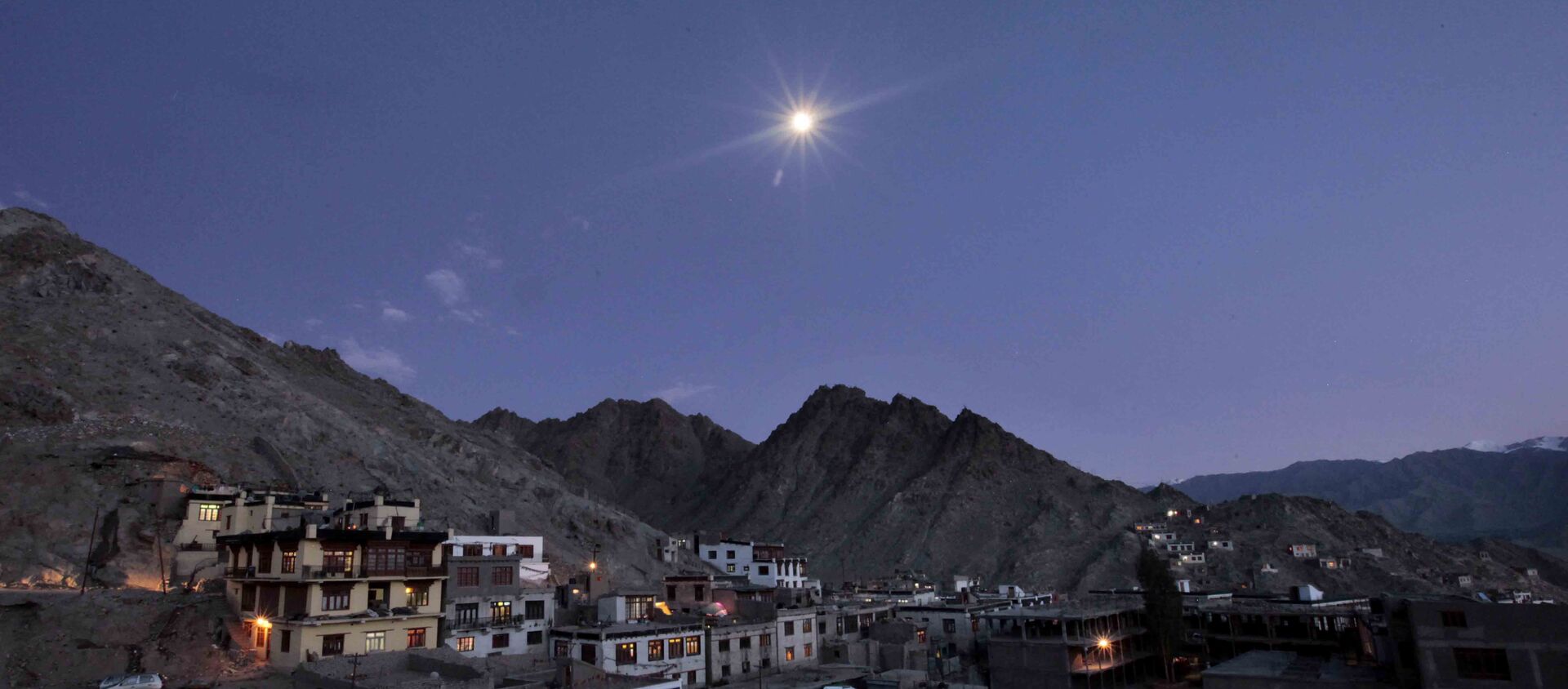https://sputnikglobe.com/20211202/indian-fm-china-has-unrealistic-expectations-border-tensions-have-spilt-into-other-areas-1091205806.html
Indian FM: China Has Unrealistic Expectations, Border Tensions Have 'Spilt' Into Other Areas
Indian FM: China Has Unrealistic Expectations, Border Tensions Have 'Spilt' Into Other Areas
Sputnik International
India and China have held 13 rounds of talks at military-commander level as well as several official meetings in a bid to resolve the Ladakh border dispute... 02.12.2021, Sputnik International
2021-12-02T17:52+0000
2021-12-02T17:52+0000
2022-07-19T10:40+0000
wang yi
ladakh standoff
china
subrahmanyam jaishankar
https://cdn1.img.sputnikglobe.com/img/101746/94/1017469444_0:0:5028:2828_1920x0_80_0_0_f9601dc180f90a7b7ede22898b651daf.jpg
Indian foreign minister Jaishankar Subrahmanyam has accused China of having “unrealistic” expectations, as he warned that the ongoing Ladakh border dispute has started to “spill over” into other aspects of bilateral relations.“It is inevitable that it will spill over. It has spilt over into other domains,” he added.During their face-to-face meetings since the Ladakh border dispute began in May last year, Chinese foreign minister Wang Yi asked his Indian counterpart to place “these differences in a proper context vis-à-vis bilateral relations”.Wang and Subrahmanyam last met on the sidelines of the Shanghai Cooperation Organisation (SCO) foreign ministers’ meeting in Dushanbe in September this year.Subrahmanyam said on Thursday that China had been making regular attempts unilaterally to alter the status quo at the Line of Actual Control (LAC), the disputed border between the two Asian neighbours, since the “spring of 2020”.Subrahmanyam's remarks come amid massive deployment of Indian troops and those from the People's Liberation Army (PLA) in eastern Ladakh. According to media reports, nearly 50,000 soldiers from each country are present at the border.The two countries agreed on a "five-point consensus" to resolve the border dispute during a meeting between Wang and Subrahmanyam on the sidelines of the SCO summit in September 2020 when both ministers agreed to "disengage" the border troops.Since the disengagement process began in February this year, India and China have pulled back their respective troops from several friction points at the Ladakh border, including the patrolling points in the Galwan Valley, Gogra Post and Pangong Tso Lake. According to Indian media reports, Chinese troops have been stationed inside India's perceived LAC in at least two areas - Hot Springs and Depsang Plains, which remain the most volatile friction points in the ongoing military standoff.The Galwan Valley was the site of a deadly clash in June last year which left 20 Indian and four Chinese soldiers deal. The incident was the deadliest border clash between the two sides in nearly four decades. Subrahmanyam said that the Galwan Valley incident "profoundly disturbed" the trust between the two countries.
https://sputnikglobe.com/20210722/india-announces-measures-to-populate-contested-ladakh-amid-simmering-tensions-with-china-1083440405.html
https://sputnikglobe.com/20210112/india-ready-to-meet-any-challenges-on-china-border-says-ladakh-row-profoundly-disturbed-trust-1081738637.html
ladakh standoff
china
Sputnik International
feedback@sputniknews.com
+74956456601
MIA „Rossiya Segodnya“
2021
News
en_EN
Sputnik International
feedback@sputniknews.com
+74956456601
MIA „Rossiya Segodnya“
Sputnik International
feedback@sputniknews.com
+74956456601
MIA „Rossiya Segodnya“
wang yi, ladakh standoff, china, subrahmanyam jaishankar
wang yi, ladakh standoff, china, subrahmanyam jaishankar
Indian FM: China Has Unrealistic Expectations, Border Tensions Have 'Spilt' Into Other Areas
17:52 GMT 02.12.2021 (Updated: 10:40 GMT 19.07.2022) India and China have held 13 rounds of talks at military-commander level as well as several official meetings in a bid to resolve the Ladakh border dispute, which began in May last year. New Delhi blames China for starting the stand-off and Beijing says New Delhi’s “forward policy” and "illegal encroachments" are the “root cause” of the dispute.
Indian foreign minister Jaishankar Subrahmanyam has accused
China of having “unrealistic” expectations, as he warned that the ongoing Ladakh border dispute has started to “spill over” into other aspects of bilateral relations.
“As we have made clear, the state of the relationship at the end of the day will reflect the state of the border. You can’t have a tense, high-friction border and have great relations in all other parts of life. It doesn’t work that way,” Subrahmanyam said on Thursday, during a summit organised by Indian media organisation the Hindustan Times.
“It is inevitable that it will spill over. It has spilt over into other domains,” he added.
“The expectation that we will somehow contain it in a narrow sense and not allow it to affect the rest of the life, I think that is not realistic,” the Indian minister also said.
During their face-to-face meetings since the Ladakh border dispute began in May last year, Chinese foreign minister Wang Yi asked his Indian counterpart to place “these differences in a proper context vis-à-vis bilateral relations”.
Wang and Subrahmanyam last met on the sidelines of the Shanghai Cooperation Organisation (SCO) foreign ministers’ meeting in Dushanbe in September this year.
Subrahmanyam said on Thursday that China had been making regular attempts unilaterally to alter the status quo at the Line of Actual Control (LAC), the disputed border between the two Asian neighbours, since the “spring of 2020”.
“They are deployed. We are deployed. There are discussions going on by an integrated team on both sides… We are now coming close to two years, where the assumptions, understandings and agreements of the border areas have question marks against them,” remarked Subrahmanyam, expressing worry that troops had been "amassing" at the border.
Subrahmanyam's remarks come amid massive deployment of Indian troops and those from the People's Liberation Army (PLA) in eastern Ladakh. According to media reports, nearly 50,000 soldiers from each country are present at the border.
The two countries agreed on a "five-point consensus" to resolve the border dispute during a meeting between Wang and Subrahmanyam on the sidelines of the SCO summit in September 2020 when both ministers agreed to "disengage" the border troops.
Since the disengagement process began in February this year, India and China have pulled back their respective troops from several friction points at the Ladakh border, including the patrolling points in the Galwan Valley,
Gogra Post and Pangong Tso Lake.
According to Indian media reports, Chinese troops have been stationed
inside India's perceived LAC in at least two areas - Hot Springs and Depsang Plains, which remain the most volatile friction points in the ongoing military standoff.

12 January 2021, 09:29 GMT
The Galwan Valley was the site of a deadly clash in June last year which left 20 Indian and four Chinese soldiers deal. The incident was the deadliest border clash between the two sides in nearly four decades. Subrahmanyam said that the Galwan Valley incident "profoundly disturbed" the trust between the two countries.



